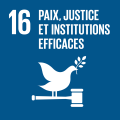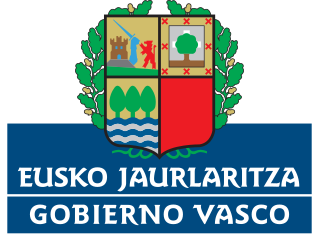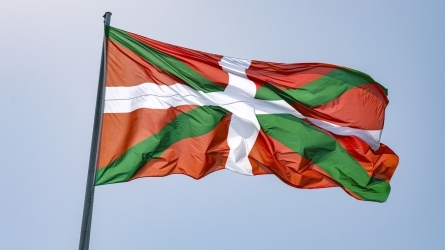
¿Hay espacio para un autogobierno mejor en Euskadi?
This Summer Course aims to be an open forum to analyze the evolution and the current state of the Basque self-government.
Description
It has been proved that the Statute of Gernika is a useful instrument for the recovery of self-government and has contributed to build a more prosperous, fair and cohesive society. However, 45 years later, it has not been possible to complete the transfer process, an erosion of the powers already assumed has been denounced, and the global challenges condition the future of self-government.
Population surveys reflect that public opinion is mainly in favour of going further in terms of self-government, and in the past years, various initiatives have been fostered to complete and update the Basque self-government.
The Basque Government's program for the following years expresses a dual objective: full compliance of the Statute of Gernika, and the achievement of the basis to draw up a new Statutory Pact through negotiation, agreement and maximum political consensus in the Basque Parliament. The Bilateral Cooperation Commission has been set in motion to schedule the negotiation for the transfer of the pending competences, and to implement preventive mechanisms against actions of interference, emptying, conditioning or reduction within the sphere of competence. Steps have been taken to consolidate self-government in fiscal matters, with greater levels of normative and regulatory capacity; and a dialogue has been initiated among the political forces to explain the possibilities of a new Statutory Pact for the Basque Country.
This Summer Course aims to be an open forum to analyze the evolution and the current state of the Basque self-government, in which, with the participation of academic experts and political representatives, it will be possible to debate on the following topics:
- The present and future of the issue, examining the steps being taken to complete the current Statute.
- The challenges posed by the completion of the Statute, and the causes and consequences of the so-called erosion of powers and the dynamics of recentralization and decentralization.
- The proposals for the achievement of a new statutory pact.
Objectives
Analyse the evolution and current state of the Basque self-government.
Examine the erosion of competence and its consequences.
Discuss a new political agreement for the Basque Country.
Encourage participation and debate among attendees.
Activity directed to
- All public
- University student
- Professionals
Program
23-06-2025
Registro/Erregistroa
Institutional Opening session. Speaking order:
- María Ubarretxena Cid | Eusko Jaurlaritza / Gobierno Vasco - Consejera de Gobernanza, Administración Digital y Autogobierno/Gobernantza, Administrazio Digital eta Autogobernuko sailburua
- Idoia Otaegui Aizpurua | UPV/EHUko Uda Ikastaroak - Zuzendaria / Directora
“Génesis y evolución del Estado autonómico/Estatu autonomikoaren sorrera eta bilakaera“
- Tomás de la Quadra-Salcedo Fernández del Castillo | Gobierno/Consejo de Estado / Gobernua/Estatu Kontseilua - Ex Ministro de Justicia/Ex Presidente / Justiziako ministro ohia/Presidente ohia
Round table: “Génesis y desarrollo del autogobierno vasco/Euskal autogobernuaren sorrera eta garapena“
- Margarita Uria Etxebarria | Congreso de los Diputados/Consejo General del Poder Judicial / Diputatuen Kongresua/Botere Judizialaren Kontseilu Nagusia - (Jurista) y Ex Diputada/Ex Vocal / (legelaria) eta diputatu/batzordekide ohia (Moderator)
- Javier Balza Aguilera | Uría Menendez - Socio / Bazkidea
- María Emilia Casas Baamonde | Tribunal Constitucional / Konstituzio Auzitegia - Ex Presidenta / Presidente ohia
- Enrique Lucas Murillo de la Cueva | Universidad del País Vasco/ Euskal Herriko Unibertsitatea - Catedrático de Derecho Constitucional/Konstituzio Zuzenbideko katedraduna
Pausa - Café/Atsedenaldia - Kafea
“ Presente del autogobierno: erosión competencial/Autogobernuaren oraina: eskumenen higadura“
- Xabier Arzoz Santisteban | Universidad Nacional de Educación a Distancia / Urrutiko Hezkuntzarako Unibertsitate Nazionala - Catedrático de Derecho Administrativo / Administrazio Zuzenbideko katedraduna
Round table: “Presente del autogobierno: erosión competencial /Autogobernuaren oraina: eskumenen higadura“
- Luis Mari (Luken) Larburu Aizpurua | Eusko Jaurlaritza / Gobierno Vasco - Letrado / Letradua (Moderator)
- Luis López Guerra | Tribunal Europeo de Derechos Humanos/Tribunal Constitucional /Giza Eskubideen Europako Auzitegia / Konstituzio Auzitegia - Presidente del Panel para selección de jueces/Ex magistrado / Paneleko presidentea epaileak/magistratu ohiak hautatzeko
- Maria Jesús García Morales | Universidad Autónoma de Barcelona / Bartzelonako Unibertsitate Autonomoa - Profesora Titular de Derecho Constitucional / Konstituzio Zuzenbideko irakasle titularra
- Javier Moreno García | Eusko Jaurlaritza / Gobierno Vasco - Asesor / Aholkularia
“El equilibrio institucional interno: la Comisión Arbitral de Euskadi/Erakundeen arteko barne-oreka: Euskadiko Arbitraje Batzordea“
- Begoña Pérez de Eulate González | Eusko Jaurlaritza / Gobierno Vasco - Directora de Autogobierno / Autogobernuko zuzendaria
24-06-2025
“ Concierto económico. Significado y valoración social del concierto económico / Ekonomia Ituna. Ekonomia Itunaren esanahia eta balorazio soziala “
- Javier Muguruza Arrese | Junta Arbitral del Concierto Económico / Ekonomia Itunaren Arbitraje Batzordea - Vocal / Batzordekidea
Round table: “El concierto económico / Ekonomia Ituna“
- Mikel Erkoreka González | Gobierno Vasco / Eusko Jaurlaritza - Director de Recursos Institucionales / Erakundeen Baliabideetako zuzendaria (Moderator)
- Iñaki Alonso Arce | Gobierno Vasco / Eusko Jaurlaritza - Viceconsejero de Hacienda / Ogasuneko sailburuordea
- Gonzalo Martinez Etxebarria | Gobierno Vasco / Eusko Jaurlaritza - Asesor / Aholkularia
- Susana Serrano Gaztelurrutia | Universidad del País Vasco/ Euskal Herriko Unibertsitatea - Profesora Agregada de Derecho Financiero y Tributario / Finantza eta Zerga Zuzenbideko irakasle agregatua
Pausa-Café
“¿Hay espacio para un autogobierno mejor en Euskadi? Propuestas para la reforma del pacto estatutario / Ba al dago espaziorik Euskadin autogobernu hobea lortzeko? Estatutu-ituna erreformatzeko proposamenak “
- Eugenio Artetxe Palomar | Gobierno Vasco / Eusko Jaurlaritza - Asesor / Aholkularia
Round table: “¿Hay espacio para un autogobierno mejor en Euskadi? Propuestas para la reforma del pacto estatutario / Ba al dago espaziorik Euskadin autogobernu hobe baterako?" Estatutu-ituna erreformatzeko proposamenak “
- Eugenio Artetxe Palomar | Gobierno Vaco / Eusko Jaurlaritza - Asesor / Aholkularia (Moderator)
- Alberto López Basaguren | Universidad del País Vasco/ Euskal Herriko Unibertsitatea - Catedrático de Derecho Constitucional / Konstituzio Zuzenbideko katedraduna
- Iñigo Urrutia Libarona | Universidad del País Vasco/ Euskal Herriko Unibertsitatea - Profesor Pleno de Derecho Administrativo / Administrazio Zuzenbideko irakasle osoa
- Juan José Álvarez Rubio | Universidad del País Vasco/ Euskal Herriko Unibertsitatea - Catedrático de Derecho Internacional Privado / Nazioarteko Zuzenbide Pribatuko katedraduna
Round table: “¿Hay espacio para un autogobierno mejor en Euskadi? / Ba al dago lekurik Euskadin autogobernu hobea izateko?“
- Ainhoa Muñoz | Diario Vasco - Redactora de la sección Política / Politika atalaren erredaktorea (Moderator)
- Joseba Díez Antxustegi | Parlamentario del PNV / EAJko legebiltzarkidea
- Arkaitz Rodriguez | Parlamentario de EH Bildu / EH Bilduko legebiltzarkidea
- Pau Blasi Uribarri | Parlamentario del PSE / PSEko legebiltzarkidea
- Laura Garrido Knörr | Parlamentaria del PP / PPko legebiltzarkidea
- Jon Hernandez Hidalgo | Parlamentario del Sumar / Sumarreko legebiltzarkidea
Closing session
Conclusiones de las jornadas
- Sofía López De Aguileta Quintana | Gobierno Vasco / Eusko Jaurlaritza - Letrada / Letradua
Directors
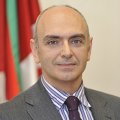
Eugenio Artetxe Palomar
Eusko Jaurlaritza / Gobierno Vasco, Asesor
Licenciado en Derecho, Postgrado en Recursos Humanos, Diploma de Estudios Avanzados de Derecho Público, programa de Doctorado, Curso superior sobre la Constitución Europea. Letrado del Departamento de Interior. Letrado de los Servicios Jurídicos Centrales del Gobierno Vasco. Responsable de la Asesoría Jurídica del Departamento de Interior. Director de Régimen Jurídico, Servicios y Procesos Electorales en el Departamento de Seguridad. Director de Justicia y actualmente Asesor del Departamento de Gobernanza, Administración Digital y Autogobierno.

Begoña Pérez de Eulate González
Eusko Jaurlaritza / Gobierno Vasco, Directora de Autogobierno
Jurista especializada en derecho público y autogobierno. Ha sido Directora de Autogobierno del Gobierno Vasco entre 2001 y 2009, y desde 2013 hasta la actualidad. Es licenciada en Derecho por la Universidad de Deusto y máster en Integración Política y Unión Económica de la UE por la UPV/EHU. Funcionaria de carrera del Cuerpo Facultativo Jurídico del Gobierno Vasco y, en excedencia, del Tribunal Vasco de Cuentas Públicas. Ha publicado artículos y colaboraciones sobre derecho constitucional, contratación pública y fiscalidad lingüística en diversas revistas y obras colectivas, como La cooperación transfronteriza en Europa o La erosión silenciosa.
Speakers
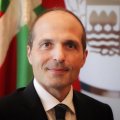
Iñaki Alonso Arce
Eusko Jaurlaritza / Gobierno Vasco, Viceconsejero de Hacienda
Viceconsejero de Hacienda. Licenciado en Derecho por la UPV (1997), Doctor en Derecho (2015) y experto en Derecho Financiero y Tributario. Ha sido Director General de Hacienda de la Diputación Foral de Bizkaia (2019-2024), y ocupó diversos cargos en el Departamento de Hacienda y Finanzas desde 2004. También fue Inspector de Finanzas (1999-2004). Es profesor en la Cámara de Comercio de Bilbao, donde imparte clases sobre el sistema tributario y el Concierto Económico. Ha publicado varios trabajos sobre Derecho Tributario Foral y ha sido ponente en numerosos seminarios. En 2009, recibió el Premio “Jesús Mª de Leizaola” por su investigación sobre el Concierto Económico.

Juan José Álvarez Rubio
UPV/EHU, Catedrático Derecho internacional privado
Juan José Álvarez Rubio (Zumaia, 1964) is Professor of Private International Law at the University of the Basque Country (UPV/EHU), where he obtained his Bachelor's degree with Extraordinary Prize and his PhD, also distinguished with the Extraordinary Prize (1995). He is Secretary of GLOBERNANCE and was Secretary-General of the Basque Council of the European Movement (EUROBASK/CVME) between 2003 and 2012. He is currently Chairman of the FEDIP (Spanish Forum on Private International Law). He was appointed expert by the European Commission in 2007 in the areas of civil justice, borders, data protection and security. He is principal investigator of the eAtlantic Foundation and Vice-President of JAKIUNDE. He has published ten monographs and over a hundred articles and scientific collaborations. He also serves as a lawyer and consultant in compliance and international recruitment, and is a member of the board of the IKERBASQUE and UNED Bergara foundations. Since April 2022, he has been an independent advisor to the KUTXA Governing Council for Labor.

Eugenio Artetxe Palomar
Eusko Jaurlaritza / Gobierno Vasco, Asesor
Licenciado en Derecho, Postgrado en Recursos Humanos, Diploma de Estudios Avanzados de Derecho Público, programa de Doctorado, Curso superior sobre la Constitución Europea. Letrado del Departamento de Interior. Letrado de los Servicios Jurídicos Centrales del Gobierno Vasco. Responsable de la Asesoría Jurídica del Departamento de Interior. Director de Régimen Jurídico, Servicios y Procesos Electorales en el Departamento de Seguridad. Director de Justicia y actualmente Asesor del Departamento de Gobernanza, Administración Digital y Autogobierno.

Xabier Arzoz Santisteban
UNED, Catedrático de Derecho Administrativo
Catedrático de Derecho Administrativo de la UNED desde 2020, y titular de la cátedra Jean Monnet Integration through EU Fundamental Rights (2022-2024). Exletrado del Tribunal Constitucional (2011-2020) y exmiembro de la Comisión Asesora del Defensor del Pueblo sobre los abusos sexuales en el ámbito de la Iglesia (2022-2023). Anteriormente, fue Basque Visiting Fellow en la Universidad de Oxford (2004-2005), y profesor asociado (1993-2001) y profesor titular (2001-2020) de la UPV/EHU. Es experto en justicia constitucional, derechos fundamentales, Derecho de la Unión Europea, Derecho Administrativo, autonomía y federalismo y derechos lingüísticos. Es autor de diez libros y más de ciento cuarenta publicaciones. Ha obtenido numerosos premios de investigación: entre ellos, el CEF (en materia constitucional y administrativa, 2010), el Lorenzo Martín-Retortillo (sobre derechos fundamentales, 2014) y el Eduardo García de Enterría (sobre estudios europeos, 2021).

Javier Balza Aguilera
Uría Menendez, Socio
Socio de Uría Menéndez desde 2013 y responsable de la práctica de Derecho Público en la oficina de Bilbao, que dirigió entre 2019 y 2022. Con más de 40 años de experiencia en el ámbito jurídico, ha centrado su carrera en el Derecho Administrativo y Constitucional, tanto en el asesoramiento como en la litigación ante la jurisdicción contencioso-administrativa. Durante una década (1999–2009) fue consejero de Interior del Gobierno Vasco, y anteriormente dirigió los servicios jurídicos de su Administración General. Desde 2015 es vocal de la Comisión Arbitral del Estatuto de Autonomía. Está especializado en sectores como infraestructuras, transporte, energía, telecomunicaciones y finanzas públicas, y ha sido reconocido en “The Best Lawyers in Spain” en Derecho Administrativo, Ambiental y Finanzas Públicas. Licenciado en Derecho por la Universidad de Deusto, ha desarrollado también una intensa actividad docente y ha publicado numerosos trabajos sobre competencias autonómicas, constitucionalismo y Derecho público.

Pau Blasi Uribarri
Nacido en Leioa, es licenciado en Comunicación Audiovisual por la Universidad de Navarra y especialista universitario en Comunicación y Gestión Política por la Universidad Complutense de Madrid. Tras haber trabajado en diversos medios de comunicación (Cadena SER, Canal Bizkaia, Vasco Press, El Mundo), en 2009 se incorporó al Gobierno Vasco como asesor del Lehendakari Patxi López. Posteriormente, ha ocupado diversos cargos como asesor de comunicación del PSE-EE, asesor parlamentario o jefe de Gabinete de la Secretaría General. Ha ejercido también de profesor invitado en el Máster de Comunicación Política y Corporativa de la Universidad de Navarra y en el grado de Relaciones Internacionales y Derecho de la Deusto Business School.

María Emilia Casas Baamonde
Tribunal Constitucional, Ex Presidenta
Doctora en Derecho por la UCM y licenciada en Filosofía y Letras Obtuvo su 1ª cátedra en la UPV (Facultad de Derecho de Donosti). 1ª mujer Catedrática de Derecho del Trabajo y Seguridad Social del país. En 1998, ingresó como magistrada en el Tribunal Constitucional siendo el miembro más joven ingresado. En 2004 fue la 1ª mujer en presidir el Tribunal Constitucional (2004-2010). Pionera en aplicar la perspectiva de género al Derecho, como Catedrática de Derecho del Trabajo, durante su Presidencia el Tribunal Constitucional consolidó la tutela antidiscriminatoria por razón de género en sus múltiples vertientes. Avaló la constitucionalidad de la Ley Integral contra la Violencia de Género reconociendo las características específicas de este fenómeno criminal, las necesidades de protección de la víctima y el mayor reproche social de las agresiones contra la esposa o pareja. En 2014 se incorporó como asesora en el bufete de abogados Ejaso para asesorar en materia constitucional. Es Doctora Honoris Causa por diversas univ. y ha recibido importantes condecoraciones. Destacan el Premio Pelayo para Juristas de Reconocido Prestigio o la Gran Cruz de la Orden de San Raimundo de Peñafort. Consejera electiva del Consejo de Estado desde 2018.

Tomás de la Quadra-Salcedo Fernández del Castillo
Gobierno, Ex ministro de Justicia / Consejo de Estado, Ex Presidente
Catedrático Emérito de Derecho Administrativo en la Universidad Carlos III de Madrid. Fue Ministro de Administración Territorial (1982–1985) y Ministro de Justicia (1991–1993), así como presidente del Consejo de Estado entre 1985 y 1991. Ha sido coordinador del grupo redactor de la Carta de Derechos Digitales aprobada por el Gobierno en 2021 y ha participado en comisiones de expertos nacionales e internacionales sobre el Estado autonómico, gobierno digital y derechos fundamentales en entornos tecnológicos. Es autor de numerosas publicaciones académicas sobre derecho público, democracia digital, inteligencia artificial y transformación administrativa, y ha intervenido como ponente en foros de la UNESCO, la OEA y el Consejo de Europa.

Joseba Díez Antxustegi
Mikel Erkoreka González
Eusko Jaurlaritza / Gobierno Vasco, Director de Recursos Institucionales
Doctor en Historia Contemporánea y Graduado en Economía por la Universidad del País Vasco (UPV/EHU). Profesor del Departamento de Políticas Públicas e Historia Económica de la UPV/EHU. Actualmente Director de Recursos Institucionales de Gobierno Vasco.

Maria Jesús García Morales
Universidad Autónoma de Barcelona, Profesora Titular de Derecho Constitucional
Profesora Titular de Derecho Constitucional en la Universidad Autónoma de Barcelona. Licenciada y Doctora en Derecho por la Universidad de Barcelona, con Mención en "Derecho Europeo", su tesis doctoral recibió el Premio Extraordinario de Doctorado. Ha impartido clases y conferencias en universidades internacionales, incluyendo Colonia, Salzburgo, Toulouse, Macerata y Baja California. Además, ha sido investigadora invitada en instituciones de prestigio como el Instituto Max Planck, la London School of Economics y la Universidad Humboldt de Berlín, entre otras. Especializada en Derecho Constitucional Comparado, Derecho Europeo, derechos fundamentales y federalismo comparado, es autora de varios trabajos sobre estos temas y ocupa el cargo de Secretaria en la Revista d’Estudis Federals i Autonòmics – Journal of Self-Government.

Laura Garrido Knörr
GRUPO POPULAR PARLAMENTO VASCO
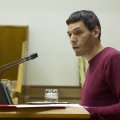
Jon Hernandez Hidalgo
Licenciado en Historia. Profesión: Carretillero, transporte de mercancías. Sindicalista Parlamentario del Grupo Elkarrekin Podemos (21.10.2016 -) • Comisión de Hacienda y Presupuestos: Vocal (12.12.2016 -) • Comisión de Desarrollo Económico e Infraestructuras: Vocal (12.12.2016 -) • Comisión de Empleo, Políticas Sociales y Juventud: Vocal (12.12.2016 -) • Comisión de Trabajo y Justicia: Vocal (12.12.2016 -) Cargos en Partidos Políticos • Secretario General del Partido Comunista de Euskadi-EPK (desde 2013). Secretario de Memoria Histórica y Movimiento Republicano del PCE-EPK (2010-2013). Secretario de Formación de Gazte Komunistak-Juventudes Comunistas (2006-2008). Otros datos de interés Foro por la Memoria de Euskadi. Fundación de Investigaciones Marxistas de Euskadi. Asociación Republicana de Irún "Nicolas Guerendiain". Asociación Republicana de Donostia-Donostiako Errepublikarrak.

Luis Mari (Luken) Larburu Aizpurua
Eusko Jaurlaritza / Gobierno Vasco, Letrado
Licenciado en Derecho por la UPV/EHU (1996) y tiene un Máster en Integración Europea (1998), además de varios estudios en Urbanismo, Gestión Inmobiliaria y Educación Primaria. Ha trabajado en diversos roles, desde Responsable Comercial y de Ejecución en Landu Promozioak (1997-2001) hasta Gestor de Suelo y Gerente en Fonorte Gipuzkoa (2003-2006). Fue Juez de Paz en Oiartzun (2003-2006) y Gestor Procesal Judicial en Donostia e Irun (2006-2017). Posteriormente, fue Asesor Jurídico en el Registro de Asociaciones del Gobierno Vasco (2017-2018) y actualmente es Letrado en los Servicios Jurídicos Centrales del Gobierno Vasco.

Sofía López De Aguileta Quintana
Eusko Jaurlaritza / Gobierno Vasco, Letrada
Licenciada en Derecho, con especialidad Jurídico-Económica por la Universidad de Deusto. Master en Derecho de la Unión Europea por la U.N.E.D. Curso de Formación para acceso a la abogacía en Escuela de Práctica Jurídica del Ilmo. Colegio de Abogados de Alava. Funcionaria del Cuerpo Superior Facultativo, Escala Jurídica, del Gobierno Vasco. Actualmente Letrada de la Dirección de Autogobierno, tras haber sido Letrada de la Dirección de lo Contencioso (2015-2025) y Asesora Jurídica del Departamento de Seguridad (1998-2015).
Alberto López Basaguren
UPV/EHU, Catedrático de Derecho Constitucional
UPV/EHU, Catedrático de Derecho Constitucional Catedrático de Derecho Constitucional en la UPV/EHU y Life Member de Clare Hall College, Universidad de Cambridge (Reino Unido). Ha formado parte del Comité de Expertos de la CELRM del Consejo de Europa (2006-2013), del Consejo Asesor del Euskera (2007-2016) y de la Comisión Arbitral (2009-2015). Entre sus publicaciones más recientes se incluyen: “La reforma federal del sistema autonómico: ¿cuadratura del círculo o triángulo virtuoso?” (2025), “Demandas de secesión en contextos democráticos. Desarrollos a partir de la teoría canadiense de la claridad” (2024), “El Ararteko y su ley reguladora a examen: balance y perspectivas de reforma” (2024), “La distribución de competencias en el sistema autonómico: la necesidad de la reforma” (2024), "Minority Languages in Spain: Recognition, Promotion and Some Conflicts" (2022, con Antonio López Castillo), “Cuestiones territoriales y secesión: reflexiones comparadas en la democracia de emergencia” (2022), “El Tribunal Constitucional frente a la emergencia pandémica (SSTC 148/2021, 168/2021 y 183/2021)” (2022), “Sobre elecciones en tiempo de pandemia. A propósito de las elecciones en Euskadi y Galicia y de la anulación de las elecciones en Cataluña
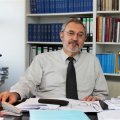
Luis López Guerra
Tribunal Europeo de Derechos Humanos, Presidente del Panel para selección de Jueces/Tribunal Constitucional, Ex magistrado
Licenciatura en Derecho, Universidad Complutense de Madrid, 1969. Licenciatura en Ciencias Políticas, Universidad Complutense de Madrid, 1970. M.A. in Political Science, Michigan State University, 1975. Doctor en Derecho, Universidad Complutense de Madrid, 1975. Catedrático de Derecho Constitucional, Universidad de Extremadura, Cáceres, España, 1981-1995. Catedrático, Universidad Carlos III de Madrid, 1995-2018. Magistrado, Tribunal Constitucional de España, 1986-1995. Vice Presidente, Consejo General del Poder Judicial de España 1996-2001. Secretario de Estado de Justicia, 2004-2007. Juez, Tribunal Europeo de Derechos Humanos, 2008-2018. Presidente del Panel para selección de jueces del TEDH, 2023-actualidad. Autor de numerosos libros y artículos sobre Ciencia Política y Derecho Constitucional. Últimos libros publicados, La Constitución de España, Valencia, Tirant lo Blanch, 2019; El Convenio Europeo de Derechos Humanos, según la jurisprudencia del Tribunal de Estrasburgo, Valencia, Tirant lo Blanch, 2021.

Enrique Lucas Murillo de la Cueva
UPV/EHU, Catedrático de Derecho Constitucional
Licenciado en Derecho por la Universidad de Deusto. Doctor en Derecho por la Universidad Complutense de Madrid. Catedrático de Derecho Constitucional de la Universidad del País Vasco. Funcionario del Cuerpo Superior de Administradores Civiles del Estado en excedencia. Desempeñó durante 20 años diversos cargos en el Gobierno Vasco (Director de la Secretaría del Gobierno y de Relaciones con el Parlamento y Secretario General de Régimen Jurídico), donde ejerció la jefatura de sus servicios jurídicos y fue Presidente de la Comisión Jurídica Asesora (Euskadi), órgano consultivo superior Euskadi. De 2013 a 2024 fué Vocal del Consejo General del Poder Judicial por el turno de juristas de reconocida competencia y fue miembro de la Comisión Disciplinaria, la de Asuntos Económicos y del Comité de Protección de Datos. Ha ejercido la profesión de abogado desde 2006. Se incorporó al Despacho Gómez Acebo & Pombo como director de su oficina en Bilbao y desde 2008 como socio de la Firma hasta diciembre 2023. Desde enero 2024 es Patrono de la Fundación Fernando Pombo y desempeña con dedicación a tiempo completo su cátedra en la Universidad del País Vasco. Autor de libros y publicaciones sobre temas de su materia.

Gonzalo Martinez Etxebarria
Eusko Jaurlaritza / Gobierno Vasco, Asesor
Licenciado en Derecho (2005) y Doctor en Derecho por la Universidad de Deusto (2014), donde obtuvo la máxima calificación "sobresaliente cum laude" con su tesis sobre el Concierto Económico Vasco. Desde 2013, es Profesor Contratado Doctor de Derecho Constitucional en la Universidad de Deusto, acreditado como Profesor de Universidad Privada por Unibasq (2018) y como Profesor Agregado (2019). Ha impartido clases en diversos programas de Grado, Posgrado y Doctorado en la Universidad de Deusto y en universidades internacionales, como la Universidade Nova de Lisboa, el Ateneo de Manila y la Corporación Universitaria de la Costa en Barranquilla. Ha desempeñado diversos cargos de gestión en la Universidad de Deusto y ha formado parte de grupos de investigación reconocidos por el Gobierno Vasco. Es autor de 27 publicaciones científicas y ha participado como ponente en 32 congresos y seminarios internacionales.

Javier Moreno García
Eusko Jaurlaritza / Gobierno Vasco, Asesor
Licenciado en Derecho por la Universidad de Deusto en 1996, con especialidad en Jurídico-Económica, y Doctor en Derecho por la Facultad de Derecho del País Vasco en 2014. Desde febrero de 2024, es personal eventual en el Departamento de Ciencia, Universidades e Innovación de la Administración General del País Vasco. Previamente, fue funcionario interino en la misma administración desde 2003 hasta enero de 2024. Entre 2002 y 2003, desempeñó el cargo de Secretario Municipal en el Ayuntamiento de Azkoitia (Gipuzkoa). Antes de su trayectoria administrativa, ejerció la abogacía entre 1999 y 2001.

Javier Muguruza Arrese
Junta Arbitral del Concierto Económico, Vocal
Licenciado en Derecho por la Universidad de Deusto (1981), inició su carrera como Técnico de Hacienda en la Diputación Foral de Bizkaia, donde trabajó de 1982 a 2003. Entre 1993 y 1997 fue Experto Nacional en la Dirección General de Fiscalidad Indirecta de la Comisión Europea en Bruselas. De 1999 a 2003, ocupó el cargo de Director de la Hacienda Foral de Bizkaia. Desde 2003 hasta 2023, ejerció como abogado fiscalista en Bilbao. Actualmente, es Vocal de la Junta Arbitral del Concierto Económico, cargo que ocupa desde 2010 hasta 2025.

Ainhoa Muñoz

Begoña Pérez de Eulate González
Eusko Jaurlaritza / Gobierno Vasco, Directora de Autogobierno
Jurista especializada en derecho público y autogobierno. Ha sido Directora de Autogobierno del Gobierno Vasco entre 2001 y 2009, y desde 2013 hasta la actualidad. Es licenciada en Derecho por la Universidad de Deusto y máster en Integración Política y Unión Económica de la UE por la UPV/EHU. Funcionaria de carrera del Cuerpo Facultativo Jurídico del Gobierno Vasco y, en excedencia, del Tribunal Vasco de Cuentas Públicas. Ha publicado artículos y colaboraciones sobre derecho constitucional, contratación pública y fiscalidad lingüística en diversas revistas y obras colectivas, como La cooperación transfronteriza en Europa o La erosión silenciosa.

Arkaitz Rodriguez
Parlamentario del Grupo EH Bildu desde el año 2020 hasta la actualidad. Es ingeniero técnico en Electrónica Industrial. Fue elegido secretario general de Sortu el 23 de septiembre de 2017, sustituyendo a Arnaldo Otegi. Ha sido elegido en 2025 Secretario de Acción Política de EH Bildu.

Susana Serrano Gaztelurrutia
UPV/EHU, Profesora Agregada de Derecho Financiero y Tributario
Licenciada en Derecho por la Universidad de Deusto (1998) y Doctora en Derecho por la UPV/EHU (2010), ha sido Juez de Paz en Berriz durante los últimos siete años, tras desempeñar el mismo cargo en Elorrio durante 12 años. Actualmente, cursa el Grado en Periodismo (2024-2025) y cuenta con una sólida formación en Derecho Autonómico Vasco y Derecho Civil Foral del País Vasco, con varios diplomas de especialización en estas áreas. En 2011, recibió el Premio Jesús Mª Leizaola del IVAP por su trabajo sobre el Concierto Económico ante el juez comunitario. Su actividad investigadora se centra en Derecho Financiero y Tributario, Concierto Económico, financiación foral y autonómica, y economía social. Ha obtenido dos sexenios de investigación y ha publicado dos monografías, 34 artículos y 32 capítulos en libros colectivos. Además, dirige TFG y TFM en los Grados en Derecho y Doble Grado en ADE y Derecho.

Margarita Uria Etxebarria
Congreso de los Diputados, Ex Diputada/Consejo General del Poder Judicial, Ex Vocal
Licenciada en Derecho por la Universidad de Deusto en 1975, comenzó su carrera profesional como abogada en ejercicio hasta 1980. A partir de entonces, se incorporó al Gobierno Vasco como Letrada de los Servicios Jurídicos, donde destacó especialmente como Directora de lo Contencioso entre 1984 y 1996. Su trayectoria política dio un giro cuando fue elegida Diputada a Cortes por Bizkaia, representando al Grupo Parlamentario Vasco durante tres legislaturas consecutivas: la VI (1996-2000), VII (2000-2004) y VIII (2004-2008). En 2008, fue nombrada Vocal del Consejo General del Poder Judicial, cargo que desempeñó hasta 2013. Posteriormente, asumió el puesto de Asesora en la Secretaría General de Acción Exterior entre 2013 y 2016. Desde 2016, ocupa el cargo de Directora de la Agencia Vasca de Protección de Datos, donde lidera los esfuerzos en la gestión y supervisión de la protección de datos personales en la Comunidad Autónoma del País Vasco.

Iñigo Urrutia Libarona
UPV/EHU, Profesor Pleno de Derecho Administrativo
Profesor Pleno de Derecho Administrativo en la UPV/EHU y desde 2017 es el Aldezle (defensor universitario) de la UPV/EHU. Su labor académica y profesional se ha centrado en los derechos fundamentales, el Derecho Administrativo, el régimen jurídico de las lenguas, la legalidad de la actuación administrativa y el control de la discrecionalidad. Autor de más de cien trabajos de investigación, ha abordado temas como la biotecnología, el derecho ambiental y el mercado de servicios en la UE. Ha participado como ponente en once congresos internacionales y ha sido invitado por prestigiosas universidades e institutos de investigación en Europa y América del Norte. En 2018, fue designado por el Parlamento Vasco como uno de los cinco expertos encargados de redactar el anteproyecto del nuevo Estatuto político de Euskadi.
Registration fees
| Face-to-face | Until 23-06-2025 |
|---|---|
| 0 EUR |
| Live online | Until 23-06-2025 |
|---|---|
| 0 EUR |
Venue
Miramar Palace
Pº de Miraconcha nº 48. Donostia / San Sebastián
Gipuzkoa
Miramar Palace
Pº de Miraconcha nº 48. Donostia / San Sebastián
Gipuzkoa
Sustainable development goals
Agenda 2030 is the new international development agenda approved in September 2015 by the United Nations. This agenda aims to be an instrument to favour sustainable human development all over the planet, and its main pillars are the eradication of poverty, a reduction in equality and vulnerability and fostering sustainability. It is a unique opportunity to transform the world up to 2030 and guarantee human rights for all.

16 - Peace, justice and strong institutions
Foster peaceful and inclusive societies for sustainable development, facilitate access to justice for everyone and construct efficient and inclusive institutions that are accountable at all levels. Key issues: a reduction in violence, mistreatment and exploitation, the rule of law, equal access to justice, a reduction in corruption and bribery, efficient and transparent institutions, participation, access to information, protection of fundamental freedoms.
More information